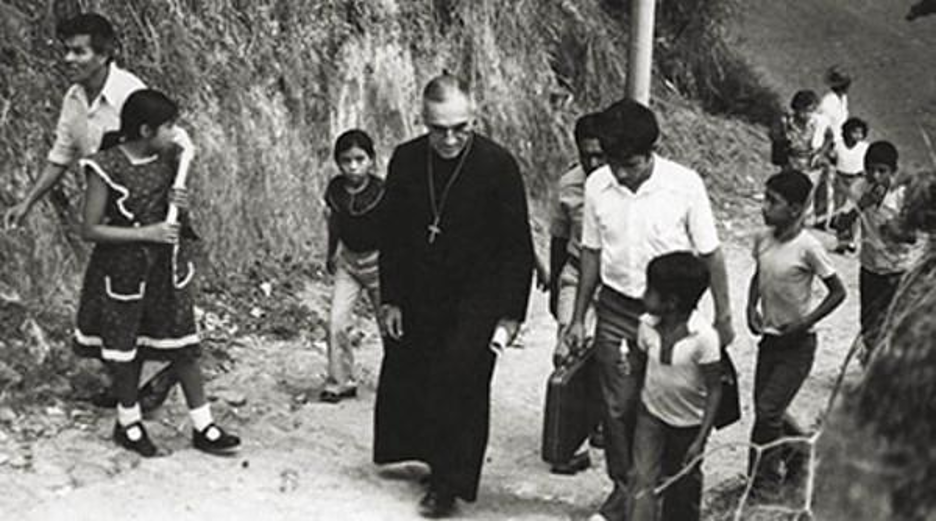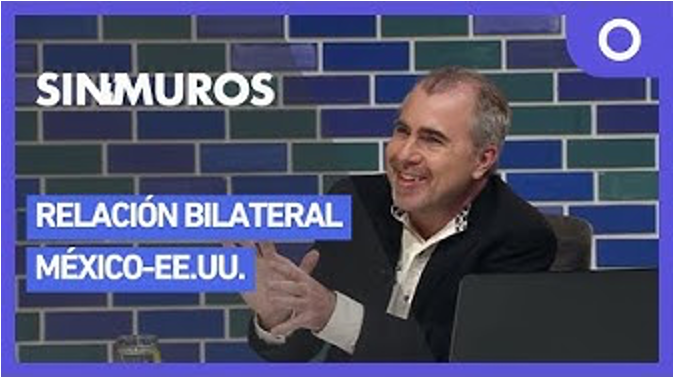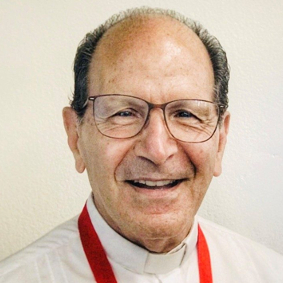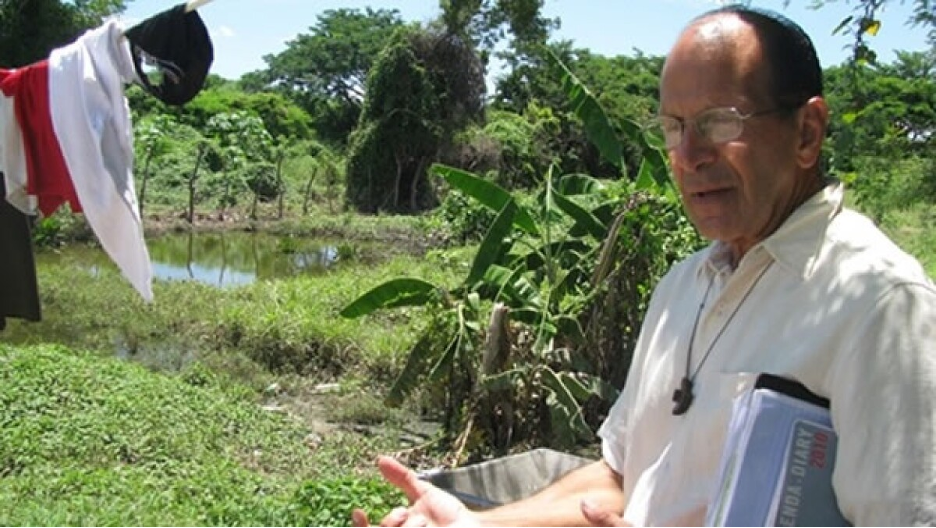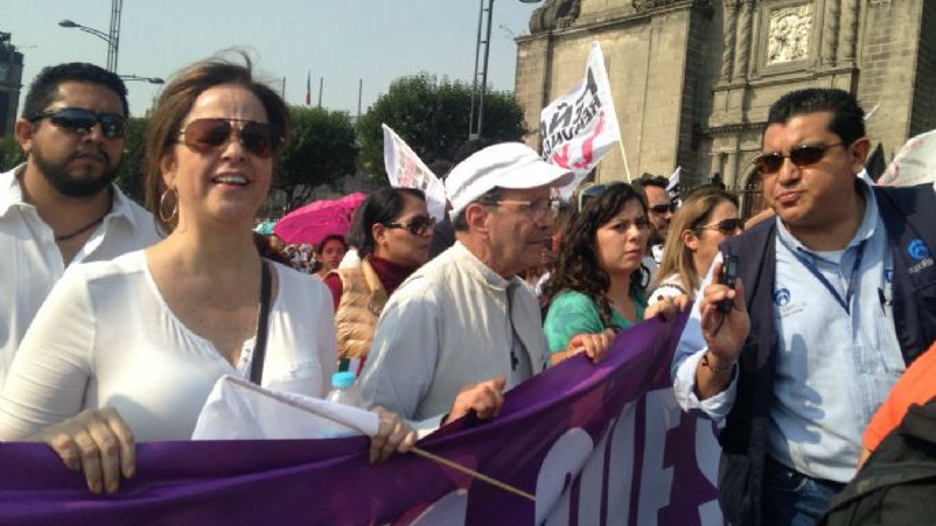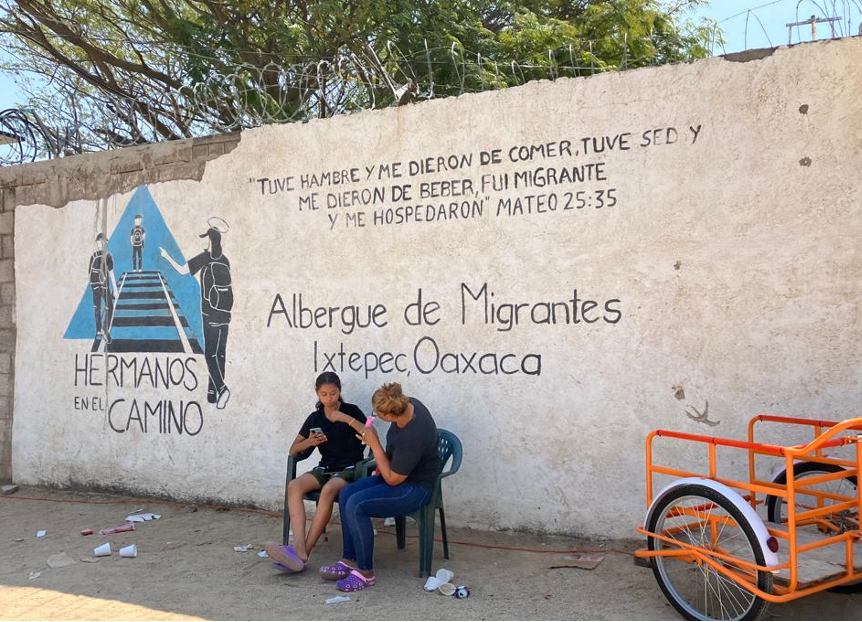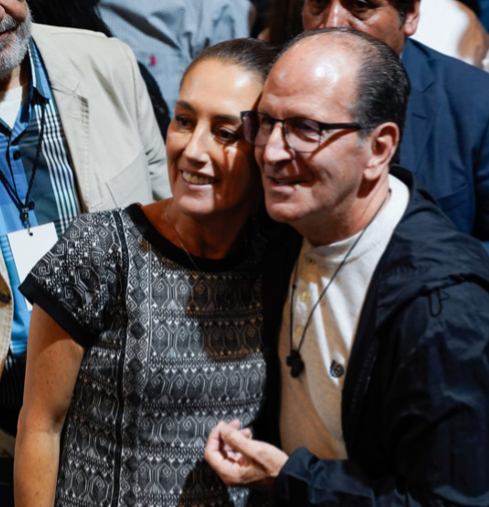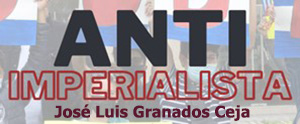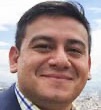|
|
The weekly newsletter of the Mexico Solidarity Project |
|
Every issue archived online at mexicosolidarityproject.org |
|
April 02, 2025 |
|
|
|
Walk with the Poor: "Death has no Dominion" |
|
Meizhu Lui, for the editorial team |
|
|
Archbishop Romero and his people |
|
On March 24, 1980, Salvadoran Archbishop Oscar Romero, who would later be sainted, was shot and killed during Mass. Most of his life, he was a Catholic conservative who opposed the Liberation Theology movement rising within the Church.
Until, living in a poor rural area, he saw firsthand the suffering of the people. Then, in 1977, his dear Jesuit friend, Rutilio Grande, an outspoken advocate for the landless poor, was assassinated. After his death, Romero began publicly denouncing the arrests, torture and murders of those fighting for human rights. Three years later, he too lay dead. The fellow Catholics who thought he’d sold out to Marxism wanted him silenced and were complicit in his murder. But among the people, he is beloved for standing shoulder to shoulder with them, in life and in death.
Alejandro Solalinde is a priest in Oaxaca, whose life in many ways echos Archbishop Romero’s. He, too, could have been comfortable in the Church hierarchy. He, too, acted on his belief that the poor must be prioritized — which may account for his friendship with former president López Obrador, who also insisted, “First, the poor.”
Father Solalinde is well known in Mexico and internationally for giving away all his worldly goods and living in the shelter he built for migrants passing through Oaxaca on their dangerous journey north. Helping migrants threatens the existing social order, which includes the drug cartels operating in collusion with local authorities. But attempts on his life have not deterred him.
We talked with him less about the daily drama of his life than about the spiritual principles that compelled him to his life of service. May we all, Catholic or not, find our way to his Kingdom of God. |
|
For a deeper dive into current news and analysis in English, check out our media website. And definitely see the new English podcast ¡Soberanía! (Sovereignty) with José Luis Granados Ceja and Kurt Hackbarth. |
|
Sin Muros is a weekly program dedicated to analyzing the Mexico-US relationship. An experienced team of journalists reports news, analysis and research from both sides of the border. Their cultural segments and interviews help to build understanding between Mexico and its migrant community. (English & Spanish) |
|
|
Don’t miss an issue! Sign up for a free Mexico Solidarity Bulletin subscription. |
|
|
Entering the Kingdom of God, on Earth |
|
|
Father Alejandro Solalinde is well known internationally for his courageous defense of migrants passing through Mexico. He says that human beings "are now commodities," because "we are in a neoliberal-capitalist system that does not recognize the dignity of the person and instead treats them as a means for enrichment and accumulation… we must raise our voices to recognize their dignity and demand that they be given an opportunity, because they are victims of this destruction by the same capitalism in their places of origin." |
|
When and why did you become a priest?
When I was 18 and an architecture student at UNAM, I received God’s call to devote my life to His work — those who are not people of faith don’t understand this. In the Catholic seminary, where novices study for 10 years, wonderful priests greeted me. They taught me not to be rigid but to always learn and change. That led me to question the traditional formal education of the Catholic Church.
I completed my studies, and the people in the Seminary wanted me to go to Rome. |
|
But I didn’t want to be a cookie-cutter priest, the kind that depersonalizes their relationship to the people. Instead, I became a parish priest in rural Oaxaca for 30 years. Even there, the Church higher-ups, the bishops and others, pressured me to follow their bureaucratic way of relating to parishioners. |
|
|
Father Solalinde in Oaxaca, Foto: Olga Rosario |
|
How does your understanding of Catholicism differ from that of the institutional Catholic Church?
I have faith in the congregation members who are doing God’s work on the ground. The Church has a hierarchical, top-down clerical structure — I’m in favor of a lay structure, where non-ordained activists have greater importance, including a role in decision-making.
The official model of Jesus portrays him as a priestly figure, performing the rituals, giving mass, hearing confession, absolving people of their sins — a Jesus who runs a little store where you can buy forgiveness. To me, Jesus was a teacher. He often spoke in parables, stories that made his message understandable to everyone he spoke with as he traveled about. He went out to the common people, to where they lived, connecting with each in love and peace.
I believe — with Jesus, not the official Church — in the preferential option for the poor. That is, our main mission is to serve those who have been left out and left behind. |
|
|
Father Solalinde at a protest against the privatization of energy under Peña-Nieto in 2017 |
|
And then I differ on the role of women. Is Catholicism masculine? No! It’s clear from the Bible that Jesus’s life was full of intelligent, resourceful, activist women. |
|
Take Mary Magdalene. She’s been portrayed as a prostitute, saved by Jesus. Actually, she was the owner of a fish store and donated money to him and, like many other women, was an evangelist, a missionary. Women accompanied Jesus throughout his life. Catholicism should have no dominant gender.
The “preferential option for the poor” is a core teaching of Liberation Theology. Would you put yourself in that camp?
Liberation Theology originated in the struggles of the people of Latin America. In the latter part of the 20th century, Christians joined forces with Marxists to resist severe and brutal right-wing oppression. They fought for justice together — and learned from each other. Liberation Theologists learned about the historical importance of the working classes in bringing about transformative change. And the Marxists learned that not all religion is “the opiate of the people.” Liberation Theology grew out of the cross-fertilization of Christianity and Marxism.
I have many friends who are Liberation theologists, but I am personally not interested in labels or “camps.”
You made a major theological contribution with your book El Reino de Dios: Replanteamiento Radical de la Vida 9 (The Kingdom of God, a Radical Rethinking of Life).
Finding the Kingdom of God has been my main query. What is it? How will it come about?
In my early studies, we read the Bible in both Latin and Greek, and much of it was confusing to translate. In Luke 17:21, the Pharisees ask, “When will the Kingdom of God come?” In Greek, Luke’s answer was that it is entos, which could be translated as “in you” or “among you.” I’ve come to believe that the text means “among” — that is, in the interrelationships between people. If we change our human relationships to become ones of trust, love, respect, truthfulness and justice, we will be in the Kingdom of God.
Was it your commitment to the poor that led to your work with migrants? Why did that lead to attempts on your life?
No, I met migrants by accident when I was traveling on the train. I’ve always had migrants in my community. Originally, the Mexican Bishopric funded my work. But during Peña-Nieto’s presidency from 2012 to 2018, I was very critical of his and the PRI/PAN government and its ties to the conservative Catholic Church. They cut off my funding, and I had to strike out on my own. |
|
Because I saw that migrants were in danger, I began accompanying them and set up a migrant shelter where they could stay and receive help. I didn’t realize that I was interfering with narco activities, including kidnapping, extortion and even the trafficking of human organs. |
|
|
The migrant shelter built by Father Solalinde |
|
Corrupt government officials worked with them and attempted to put me in jail. They burned down my building — with me inside it! But none of that has stopped me.
With this dangerous environment, how are you feeling about Oaxaca’s future? |
|
Oaxaca isn’t generally marked by violence. I’m hopeful — even as I’m mindful of the world’s wars and cruelties. I believe in the resurrection of Jesus. I believe that the Holy Spirit will grow in people’s consciousness. I believe in change. And I believe that migrants and women are the ones who will change people’s hearts and their relationships with others, and who will expand the Kingdom of God. |
|
|
“The struggle of our migrant sisters and brothers is something that we have united with forever with Father Alejandro Solalinde.” Claudia Sheinbaum’s FB page, 9/30/23 |
|
|
|
|
Come Back to Your Homeland! |
|
|
Mexico City based freelance writer and photojournalist José Luis Granados Ceja previously spent time as a staff writer for teleSUR, and currently works with Venezuelanalysis. His writing on contemporary Latin American democratic struggles can be followed on X (Twitter): @GranadosCeja. |
|
|
The US government is rounding up dissidents on the streets. In a scene reminiscent of the US-backed dictatorships in Latin America throughout the 20th century, plainclothes ICE thugs recently detained Tufts student Rumeysa Ozturk, ambush style, on the streets of Somerville, Massachusetts.
Accused of supporting Hamas by the Trump administration, Ozturk’s only apparent crime was co-authoring essays critical of the US-funded genocide against Palestinians. Ozturk’s detention follows a similar high-profile incident where US agents picked up Palestinian activist and Columbia University graduate student Mahmoud Khalil.
“My arrest was a direct consequence of exercising my right to free speech as I advocated for a free Palestine and an end to the genocide in Gaza, which resumed in full force Monday night,” wrote Khalil in a letter dictated to family from jail.
The persecution of Ozturk and Khalil is chilling enough on its own, but the Trump administration’s attempts to justify it legally send an incredibly distressing signal.
But perhaps the most worrying aspect of the government’s persecution of Ozturk is that she doesn’t even fit the profile of the hardline Palestine student activist — the Trump administration is taking a shotgun approach to silencing dissent.
Besides persecuting anti-genocide activists from abroad, the Trump administration is attacking all non-citizens, regardless of their legal status. It’s expanding expedited removals, reinstating the "Remain in Mexico" program and ending humanitarian parole programs. In their zeal for mass deportations, the Trump administration is rounding up innocent people over their tattoos, accusing them of ties to gangs and shipping them out to notorious El Salvador prisons, running roughshod over due process.
In the face of all this, my message to migrants, especially Mexicans, is: Why stay?
Come back to your homeland.
Here in Mexico, we will receive you with open arms.
I don’t claim it will be a walk in the park. In my own journey back to Mexico after living abroad my entire life, I encountered many obstacles. But where I am now, able to contribute to the development of my country, fills me with pride. I wouldn’t trade it for anything.
Starve the US of our talents. Let the reverse brain drain begin. |
|
|
|
|
Recent news reports and commentaries, from progressive and mainstream media, |
|
Témoris Grecko, ‘Drug cartels killed 35 presidential candidates so Sheinbaum could win.’: A massive US X account behind a campaign of lies Mexican Press Agency. An account with nearly 350,000 followers producing disinformation aligned with President Donald Trump is the author of many smear campaigns against Mexican President Claudia Sheinbaum.
Viri Ríos, ¿Cuántos impuestos pagan los ricos mexicanos? Milenio. Los datos más recientes muestran que en México, las personas que pertenecen al 10% más rico pagan el 38% de los impuestos. La cantidad parece relevante, pero es muy pequeña pues, en México, esas personas poseen el 60% de los ingresos y el 78% de la riqueza. Es decir, si las personas de altos ingresos pagaran lo que les toca, cuando menos deberían pagar el 60% de los impuestos.
Three Branches Election To Make Mexico the World’s Most Democratic Nation: Sheinbaum Telesur English. President Claudia Sheinbaum highlighted that Mexico will become the world’s most democratic country by allowing citizens to elect the members of the judiciary on June 1: over 100 million citizens will elect 881 members of the federal judiciary.
Nancy Gaspar and Romina Gándara, Morelos has been robbed for decades by rulers of all parties Sin Embargo. Pineda explicó que, pese a las múltiples denuncias y evidencias de corrupción, ninguno de los exgobernadores ha enfrentado consecuencias legales.
Venezuela Thanks México for Rejecting Trump’s Tariffs Orinoco Tribune. Sheinbaum criticized the Trump administration’s measures, stating during a press conference that they “affect not only a government, but an entire people.”
Cristina Gómez Lima, Plantea Sheinbaum complementar con Fondo del Bienestar pensiones del Issste La Jornada. Aseveró que seguirá dialogando con los docentes del país porque nunca vamos a actuar en contra de los maestros de México, nosotros no somos como en el neoliberalismo.
Ronny Reyes, United Auto Workers union praises Trump’s tariffs on Canada and Mexico NY Post. International solidarity only ever a passing phase for the one-million member union, headquartered in the USA, but which also represents workers in Canada.
Bernardo Barranco V, Eduardo Verástegui y las contradicciones de la ultraderecha Resumen Latinoamericano. Por más que nos parezca grotesco y fachoso, Verástegui es una regresión, una amenaza para la democracia mexicana.
Niles Niemuth, Unifor embraces Liberals, pushes Canadian nationalism in response to Trump’s auto tariffs WSWS. Unifor is not advancing a strategy for working class action or cross-border unity with American and Mexican workers, who will also face the prospect of losing their jobs and livelihoods. Rather, it is lining up behind the ruling class and Canadian imperialism in an effort to rally workers around the national hearth. Ernesto Jiménez, Asesinan a coordinador del PT en Copanatoyac; su esposa e hijo también murieron en el ataque Infobae. En un comunicado difundido por el PT se condenó la masacre y se recalcó que Juvenal Calleja se desempeñaba como coordinador estatal desde el pasado 28 de febrero y exigió a la Fiscalía General del Estado (FGE) una investigación profesional y exhaustiva para identificar y detener a los responsables. |
|
|
|
|
The Mexico Solidarity Project brings together activists from various socialist and left organizations and individuals committed to worker and global justice. We see the 2018 election of Andrés Manuel López Obrador as president of Mexico as a watershed moment. AMLO and his progressive Morena party aim to end generations of corruption, impoverishment, and subservience to US interests. Our Project supports not just Morena, but all Mexicans struggling for basic rights, and opposes US efforts to undermine organizing and Mexico’s national sovereignty.
Editorial committee: Meizhu Lui, Bruce Hobson, Agatha Hinman, Victoria Hamlin, Courtney Childs, Pedro Gellert. To give feedback or get involved yourself, please email us! |
|
Subscribe! Get the Mexico Solidarity Bulletin in your email box every week. |
|
Web page and application support for the Mexico Solidarity Project from NOVA Web Development, a democratically run, worker-owned and operated cooperative focused on developing free software tools for progressive organizations. |

